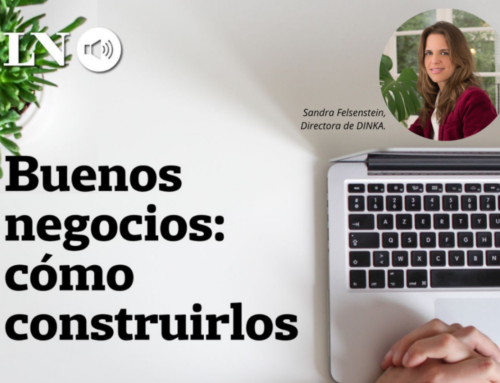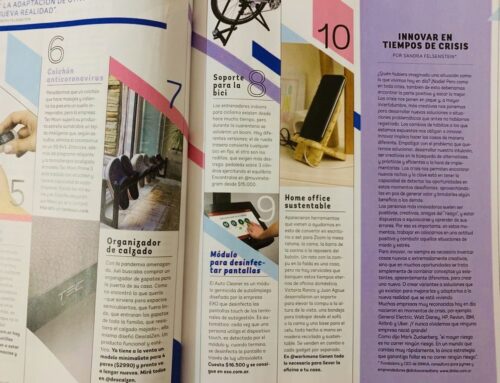ENTREPRENEURS: DINKA
In a single consulting firm, all the specialists necessary to advise entrepreneurs and owners of small and medium-sized businesses. Sandra Felsenstein created it due to the evidence that they accompany those who do not benefit from external advice.
Sandra Felsenstein called her company DINKA because it is the acronym – slightly modified – for Contemporary Argentine Designs. His firm, founded in 2005, began advising local designers to market their products abroad. But soon entrepreneurs and SMEs began to come from multiple sectors of activity seeking advice from this industrial engineer. And in parallel, of course, the reasons for consultation also diversified.
There are currently six groups into which the firm divides the projects it works for. Among them are: startup projects and new businesses; commercial management; restructuring and organization of family businesses and sales management, which is the most recently incorporated specialty. The other two areas of DINKA consulting are “transversal”, because they cross all areas of any type of project: professionalization of SMEs and optimization of resources. That is, answers for all concerns.
“Everything was born from the observation that SMEs cannot hire specialists for every need,” says Felsenstein. “Very punctual works for very large companies, but small and medium ones need something more comprehensive.”
Over time, it incorporated consulting areas on demand and, consequently, called on consultants with different profiles, in order to cover the entire spectrum of client needs.
The work modality is by projects. "I always have the first meeting with the client. There I interpret what their need is," says the entrepreneur. “This allows me to detect which of the consultants on our team is the most suitable for him.” Once the problem on which to start has been defined, a plan is agreed with the client to work in modules, each of which can be led by a different specialist.
Then, a work time is established with the consultant to reach a specific objective, which may be a module. "Five months is a good period to achieve an objective. The first month is always a diagnosis: getting to know the company and the people who make it up; putting on the shirt," says Felsenstein.
"In the next three or four months the module is completed. But sometimes the projects have several modules - and therefore, several specialists - so they can last a year, a year and a half or more," he indicates, and highlights: "After three months they already see results and, when that happens to them, they always want to continue."
strategic partner
A differential of DINKA's modus operandi is that the firm forms work teams with the client. “It is not like consulting firms in specific areas – for example, HR – that tell you what shortcomings they detected and tell you the steps to follow but do not accompany you to solve those problems,” compares the entrepreneur. "We meet with the client weekly at their facilities. In these meetings we analyze and establish a strategy and the steps to achieve it," he explains. “So it is also important how much the consultant is involved with what I call “homework”: the duration of the project is greatly influenced by the amount of time and resources that the consultant allocates to it.” In parallel, there are internal supervision meetings at DINKA, with Felsenstein and each consultant.
The firm also incorporated specific training, such as those on technical issues or the use of certain tools.
In the team of consultants there are economists, graduates in Administration, accountants, specialists in sales and commercial communication, etc. “But they are assigned to each project more based on the comprehensive profile of each one, not so much by the profession,” concludes the entrepreneur.
CONTEXT
Questions
Some constant reasons for consulting DINKA are:
"I feel like I don't have enough time and it's hard for me to delegate; no one in my company does things like I do." “I sell and at the end of the month I don't see the results.” “I am not clear about what my real profit is.” “I feel alone in making decisions.” “I have almost no competition: I should sell more.” Startups sometimes have the good sense to consult before becoming such. “They come with an idea, for example an application, and they don't find how to make it profitable,” says Felsenstein. “So we put together a business model and if I don't see it as viable, I dis-recommend it, I'm very frank.”








